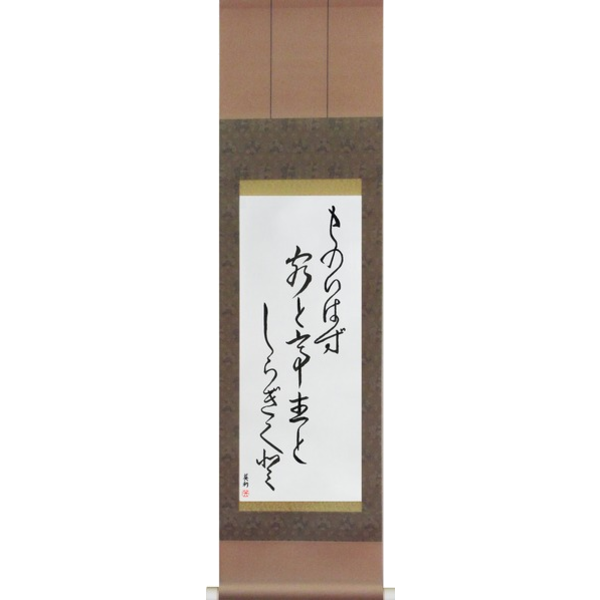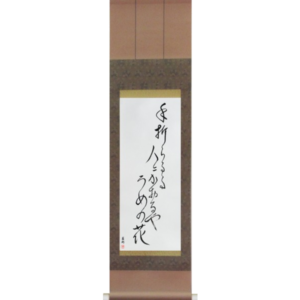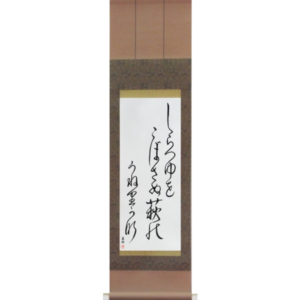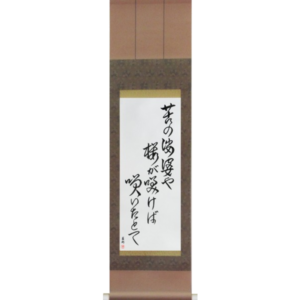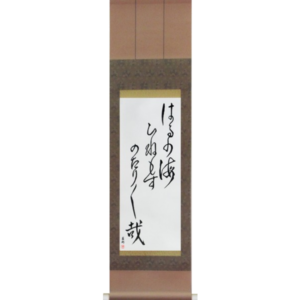H3018 Haiku by Ryota – They spoke no words …
by Master Japanese Calligrapher Eri Takase
They spoke no words.
The visitor, the host,
And the white chrysanthemum. [1]
|
mono iwazu kyaku to teishu to shiragiku to |
ものいはず 客と亭主と 白菊と |
| ryouta | 蓼太 |
One can imagine this as a setting for a tea ceremony – the host and the guest appreciate the white chrysanthemums in its place of honor. Miyamori writes, “Both the host and the guest who is invited to view the white chrysanthemums are smitten by their beauty and gazing at them speechless. It is quite interesting that ‘white chrysanthemums’ are imagined to be silent as well as ‘host and ‘guest'” [2]
R. H. Blyth suggests the translation:
They spoke no word,
The host,the guest,
And the white chrysanthemum. [3]
Asataro Miyamori suggests the translation:
They spoke not: host and guest
And white chrysanthemums. [4]
Harold G. Henderson suggests the translation:
From them no words come:
the guest, the host, the white
chrysanthemum. [5]
Calligraphy Notes:
1) Students of Japanese know that when the hiragana は (ha) is used as a grammatical particle it is read “wa“. So, for example, the sentence これはペンです is read “kore wa pen desu” and not “kore ha pen desu“.
Prior to hiragana being codified in modern times, the hiragana は was also used in words to represent the sound “wa“. In these designs, we use the convention at the time of the poet so instead of the modern いわず (iwazu), we use the now archaic いはず (iwazu). And to emphasize, the reading is the same, only the characters are different.
Translation Notes:
ものいはず
客と亭主と
白菊と1) もの (mono) – meaning “things; something; anything; everything; nothing;”.
2) いはず (iwazu) – not spoken. Negative of the verb 言う (iu) meaning “to say; to speak”
ものいはず thus becomes “nothing was spoken”.
3) 客 (kyaku) – meaning “visitor; guest”.
4) と (to) – meaning “and”.
Henderson writes, “In any obvious series a to may be omitted. But it cannot be omitted if it is desired to emphasize that two or three or more things are on an absolute equality.” [6] And he goes on to give this haiku by Ryota as a prime example.
5) 亭主 (teishu) – meaning “master; lord; host”.
6) と (to) – see (4) above.
7) 白菊 (shiragiku) – meaning “white chrysanthemum”.
6) と (to) – see (4) above.
References:
[1] Translation by Timothy L. Jackowski, Takase Studios, LLC.
[2] 502.
[3] 1120.
[4] 502.
[5] 189.
[6] 119.
